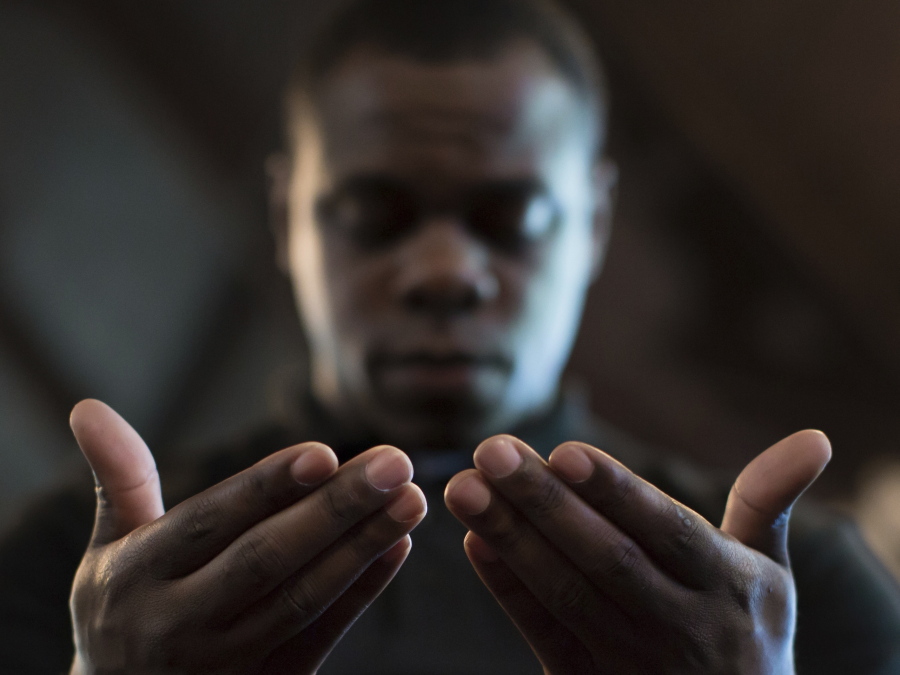NEW YORK — Black Americans attend church more regularly than Americans overall, and pray more often. Most attend churches that are predominantly Black, yet many would like those congregations to become racially diverse. There is broad respect for Black churches’ historical role in seeking racial equality, coupled with a widespread perception they have lost influence in recent decades.
Those are among the key findings in a comprehensive report released Tuesday by the Pew Research Center, which surveyed 8,660 Black adults across the U.S. about their religious experiences. It is Pew’s first large-scale survey on the topic.
Among Black adults who go to religious services, 60 percent attend churches where the senior clergy and most or all of the congregation are Black, Pew found. It said 25 percent are part of multiracial congregations, and 13 percent are part of congregations that are predominantly white or another ethnicity.
Pew said patterns of worship are shifting across generations: Younger Black adults, born since 1980, attend church less often than their elders, and those who attend are less likely to do so in a predominantly Black congregation.
Among 30 Black pastors and religious leaders interviewed by Pew, some predicted further shrinkage of predominantly Black churches and an increase in multiracial congregations.
“I don’t think there should be a Black Church,” Dr. Clyde Posley Jr. of Antioch Baptist Church in Indianapolis said. “There isn’t a Black heaven and a white heaven. … A proper church will one day eschew the label of Black Church and be a universal church.”
The survey found that 66 percent of Black Americans are Protestant, 6 percent are Catholic and 3 percent identify with other Christian faiths — mostly Jehovah’s Witnesses. Another 3 percent belong to Islam or other non-Christian faiths.
Some 21 percent are not affiliated with any religion and instead identify as atheist, agnostic or “nothing in particular.” Black Americans born since 1980 are far more likely to be among the unaffiliated.
Survey responses were collected from November 2019 through June 2020, but most respondents completed the survey by Feb. 10, before the coronavirus outbreak and the racial-injustice protests that spread after the death of George Floyd in May at the hands of Minneapolis police.
Among the respondents, 77 percent said predominantly Black churches had played a role in helping Black people move toward racial equality. Yet just one third said historically Black congregations should preserve their traditional character; 61 percent said these congregations should become more racially diverse.
Nearly half of respondents said Black churches are less influential today than 50 years ago.
Among the clergy interviewed by Pew, some said too few Black pastors have been on the front lines of recent struggles against racism.
“When you look at Black Lives Matter, this is the first time that there has been any political uprising and the church isn’t spearheading it,” said the Rev. Harvey L. Vaughn III, senior pastor of Bethel AME Church in San Diego.
“We’re not as bold and courageous as we used to be,” said the Rev. Sandra Reed of St. Mark AME Zion Church in Newtown, Pa. “I have to say, I’m somewhat ashamed of that, because the AME Zion Church is known as the Freedom Church that was at the forefront of addressing all the ills of America, and we sort of lost that.”
The survey indicates that congregants at Black Protestant churches are more likely to hear preaching about race relations and criminal justice reform than those attending multiracial or white churches.
Black Protestants, meanwhile, are less likely than U.S. Protestants overall to hear sermons on abortion. Pew found 68 percent of Black adults said abortion should be allowed in most or all cases — compared with 59 percent of all U.S. adults.
Pew also posed some survey questions to 4,574 Americans who do not identify as Black to provide comparisons.
Asked whether religion is very important in their lives, 59 percent of Black respondents said yes, next to 40 percent of all U.S. adults. Asked if they prayed daily, 63 percent of Black respondents said yes, compared with 44 percent overall.
According to a recent national study cited by Pew, women make up only 16 percent of religious leaders at Black Protestant churches. Pew’s survey found that 85 percent of respondents favored allowing women to serve as senior leaders of congregations, however.



